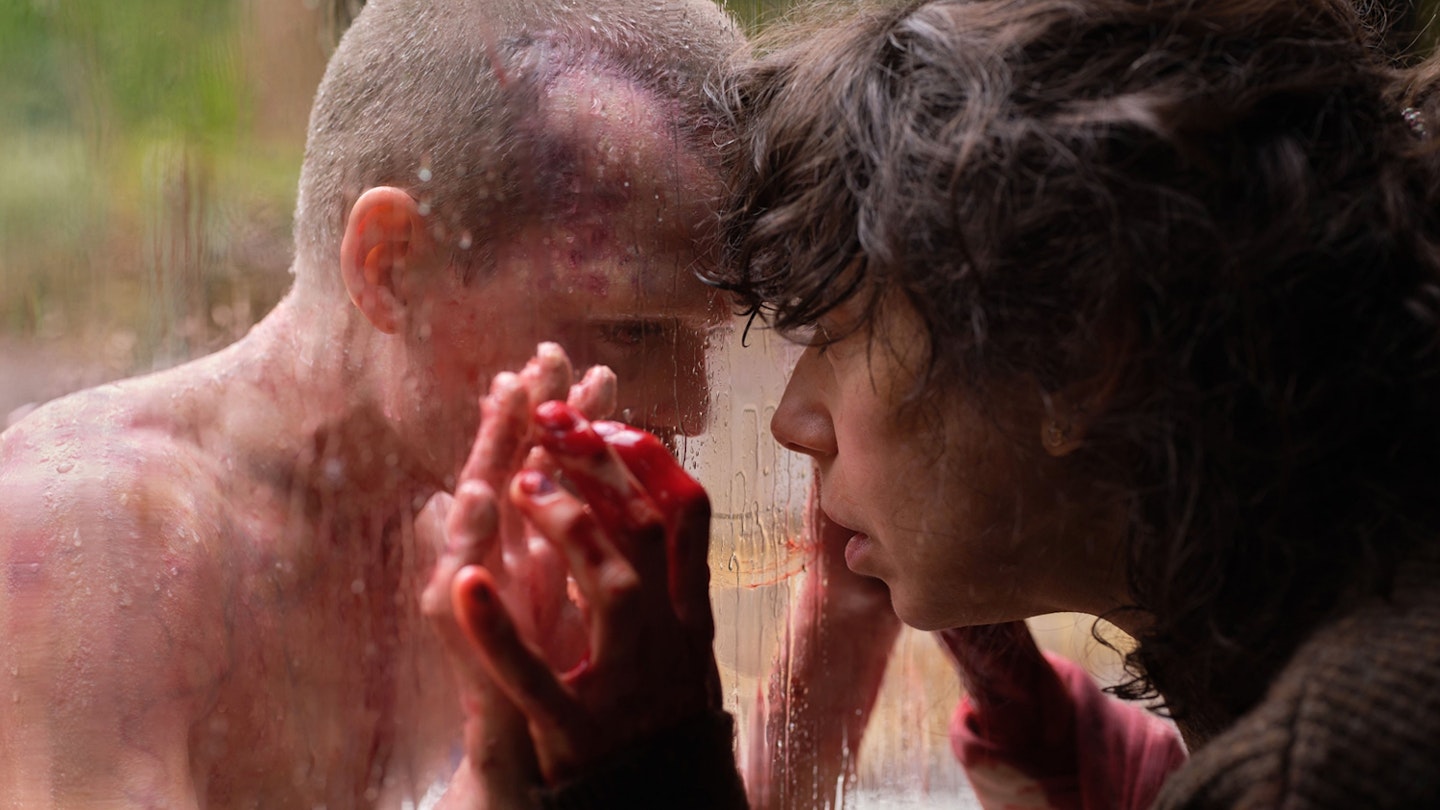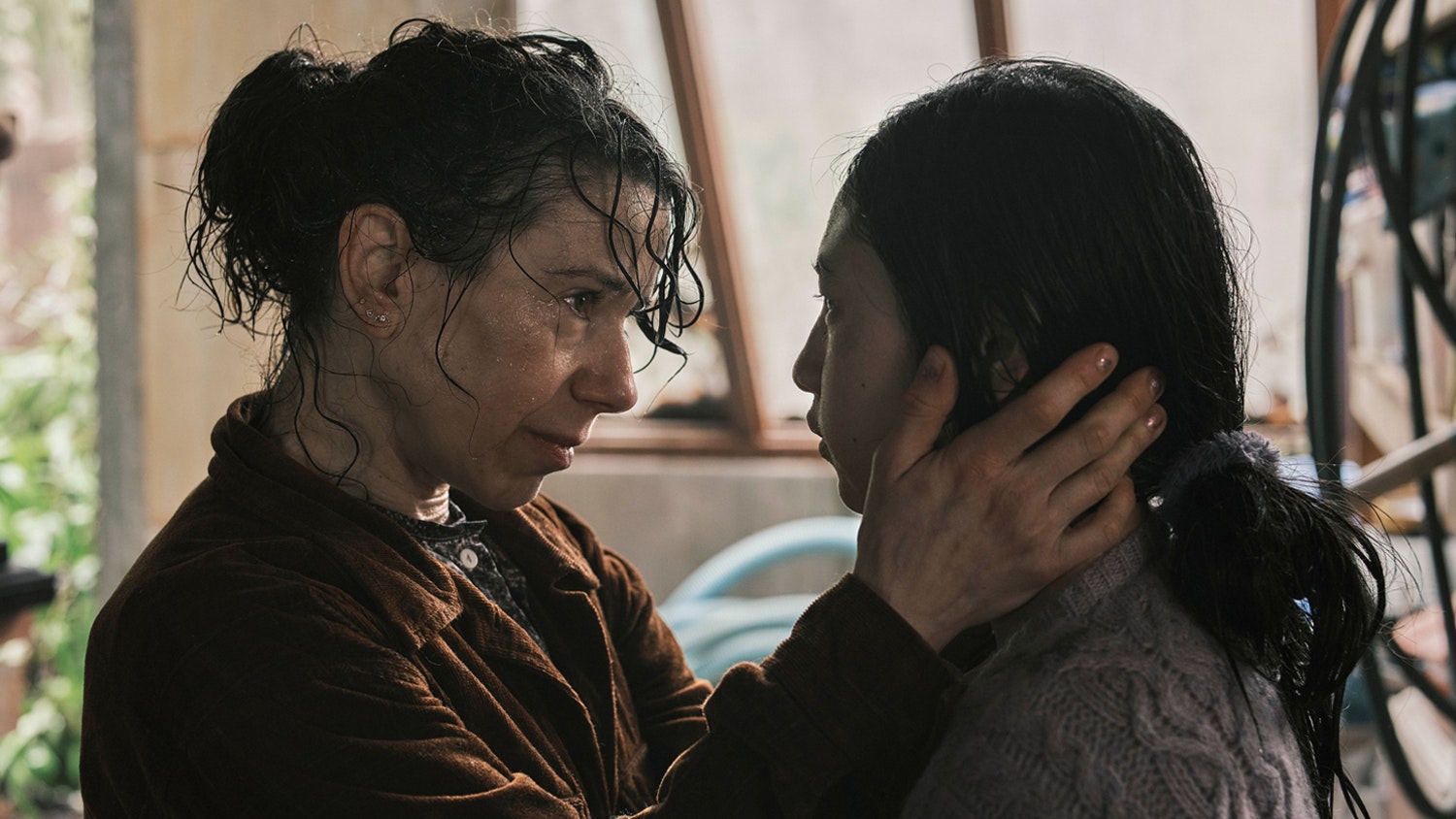Siblings Andy (Billy Barratt) and Piper (Sora Wong) are placed in the care of foster mother Laura (Sally Hawkins). Their upbringing goes straight down to hell.
All blind optimism and sunny smiles, Sally Hawkins’ radiant school teacher, Poppy, was a delight in Mike Leigh’s Happy-Go-Lucky. But wasn’t there a part of us that found her unwavering chirp-and-cheer disposition annoying? Pathological, even? “The road to hell is paved with good intentions,” snarled Poppy’s repressed driving instructor Scott (Eddie Marsan), and it would seem Danny and Michael Philippou were taking note.

In Bring Her Back, the Australian twins behind award-winning horror-comedy videos on YouTube (as RackaRacka) and 2022’s electrifying possession movie Talk To Me have cast Hawkins as affectionate, ditzy foster mum Laura. A former child-care worker and counsellor, Laura’s recovering from the loss of her own daughter when she takes in teenager Andy (Billy Barratt) and his visually impaired younger sister Piper (Sora Wong) after the death of their single father. Laura’s grief perhaps explains why she goes overboard with the warm-hearted welcome, and why it’s mostly extended to Piper. When she does think to include Andy, it’s to join him in slamming shots into the small hours — evidence of a cool kook trying to connect, or plain inappropriate?
Builds towards an atmosphere of suffocating menace and outright malevolence.
More definitively troubling are the glimpses of bat-shit behaviour that are withheld from Andy and Piper but afforded to viewers: Laura snipping a lock of hair from the father’s corpse at the funeral; ritualistic circles chalked on the floor; and grainy VHS footage of occult killings. To say too much about how these bad omens fit into the story would be to break its spell. And the same goes for Laura’s other charge, Oliver (Jonah Wren Phillips), a mute, shirtless, shaven-skulled child who might have wandered in from Speak No Evil. But suffice to say that Bring Her Back, though less energetic, anarchic and joltingly plugged into pop culture than Talk To Me, shares with the Philippous’ debut an interest in childhood trauma, the supernatural and demonstrating (demon-strating?) the thinness of the line between the living and the dead.
This last is achieved with visual flair, as bathroom mist, lashing rain, a rippling swimming pool, a spider-cracked windscreen and that aforementioned blurry video footage build an extended metaphor for the theme of obfuscation, and partially sighted truths. Just as Piper can see only vague shapes and colours (a trope the Philippous arguably exploit too much in search of tension and danger), audiences will find themselves squinting into the murk — and perhaps, at times, sighting a dimension beyond. Such echoes and patterns swirl throughout, with the motif of rounded shapes conjuring thoughts of (black) magic circles, and Cornel Wilczek’s infernal score shifting in and out of focus. If there are logic holes and narrative loose-ends that might irk some viewers, they serve the movie’s fashioning of an oblique terror that lurks beyond rational comprehension.
Bring Her Back manifests carefully, arranging impressionistic scenes with a seeming haphazardness that matches Laura’s colourfully cluttered, isolated house. What begins with an air of mystery and a sense that everything is just a fraction off-beam builds towards an atmosphere of suffocating menace and outright malevolence. And though more serious-minded than Talk To Me in its exploration of grief and abuse, this sophomore feature offers splashes of graphic imagery and streaks of cruelty, most of them involving children, that will test the mettle of even hardened horror fans.
A big hand to the Talk To Me directors for navigating the filmic equivalent of that difficult second album. An accomplished and disturbing work, with Sally Hawkins on startling form.
